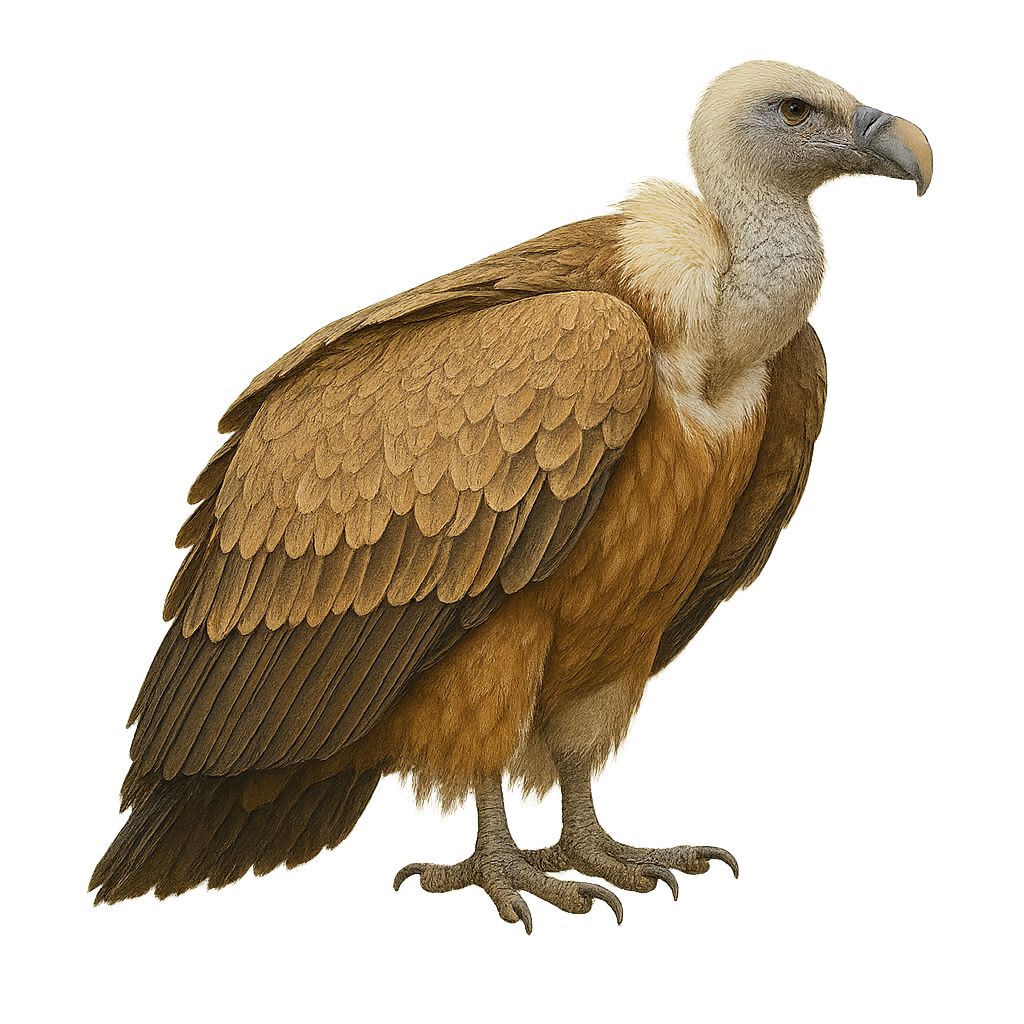Observe and photograph a species in its natural habitat
Learn where and when to observe a species in the wild, how to recognize it in the field, and what habitats it lives in. Get photography tips adapted to its behavior and capture stunning images without disturbing the animal. For full details, open the complete profile in the WildlifePhotographer app.
Griffon Vulture
Scientific name: Gyps fulvus

IUCN Status: Near Threatened
Family: ACCIPITRIDAE
Group: Birds
Shyness: Shy
Safe distance: 10 m
Breeding season / Courtship: 01.01-31.03
Gestation: 50 à 55 jours
Births: 21.04-25.06
Habitat:
Mountains, cliffs
Description:
The Griffon Vulture is a large bird of prey found primarily in the mountains, hills, and rocky areas of Europe, Asia, and North Africa. It typically measures between 93 and 110 cm in length, with a wingspan of 2.5 to 2.8 meters, and weighs between 6 and 12 kg. Its plumage is mainly light brown, with white feathers around its neck and head, and a large area of bare skin on the neck. The Griffon Vulture is a scavenger, primarily feeding on animal carcasses. It plays a crucial role in the ecosystem by cleaning up carcasses and preventing the spread of diseases. While its population has declined in some regions, the Griffon Vulture benefits from conservation programs, but it remains threatened by habitat loss, illegal hunting, and poisoning.
Recommended lens:
>=300 mm
Photography tips:
Use a telephoto lens to photograph from a distance, respecting the discreet nature of the species.
Photograph early in the morning or late in the afternoon, when the soft light enhances the plumage of the griffon vulture.
Look for it in rocky habitats such as cliffs, gorges, and mountains, where it typically nests between 200 and 1,600 meters in altitude.
Be patient and discreet to avoid disturbing its natural behavior. Avoid sudden movements and maintain silence.
The Griffon Vulture is a protected species. Intentional disturbance of the birds, especially during the breeding season, is prohibited and may result in legal penalties, including fines and imprisonment. It is essential to respect its environment and minimize disruptions.
Ready to take action?
Choose your platform and start your free trial today



